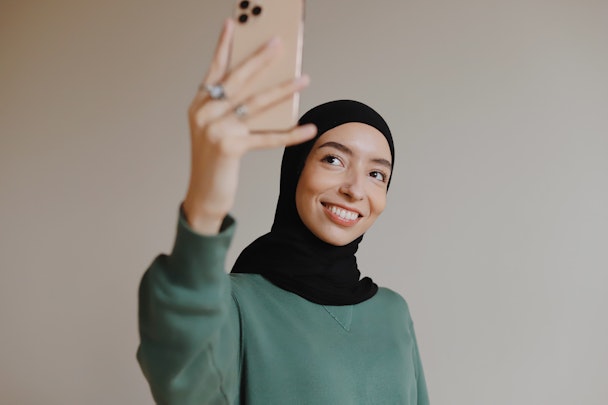Why Facebook is trying to buy instant influencer success
Facebook is no stranger to flashing the cash to attract stars to its platform. While promoting its gaming service it reportedly offered popular streamer Ninja $60-90m to produce live video exclusively on its service. It has also infamously offered publishers ostensibly generous revenue share packages to create exclusive content, with The New York Times, BuzzFeed, National Geographic and three other publishers among the earliest to attempt it.

Will Facebook be able to throw enough money at its influencer issue?
As Facebook turns its attention to growing its social commerce revenue, it naturally follows that it should similarly announce an eye-watering figure to entice influencers on to the platform. It has seen competitors including Snapchat and TikTok encroach on its social territory and, even with Instagram under its belt, the core Facebook platform isn’t always the first choice for influencers.
Mark Zuckerberg announced a $1bn reward package for creators and influencers who choose to use Facebook and Instagram’s tools. While the exact criteria and milestones to be eligible for payment aren’t clear, Facebook’s hope is that cold hard cash will be enough to tempt creators.
In fact, TikTok is far outstripping it in terms of sign-ups – it was the most-downloaded app globally in the first half of 2021 – based largely on that support. The Information estimates VCs have invested $2bn in 50 creator-focused startups this year, and Facebook doesn’t want to lose its market-leader position in any aspect of social.
Spend your way to success
Claudia Cameron is head of marketing and insights at IMA, an influencer agency. She believes that the announcement is an acknowledgement of the importance of the influencer to Facebook’s wider revenue mix: “Facebook’s investment is finally an acknowledgement that the creators within its platforms are an integral piece of their product.
“Content is king, and enabling the opportunity to host the best content is going to ensure that the platform’s users keep coming back. Hence allowing Facebook to continue to generate profits from serving ads.”
Despite that, she argues that it has much to do to ensure that this is seen as a genuine effort by Facebook, particularly in light of the tangible support its competitors offer: “Instagram is still the go-to for creators and users alike. However, it’s important to note that TikTok’s presence and fast-growing popularity is fueled by not just its algorithm, but also by the platform nurturing its creators. Understanding that influencers creating content is an extremely important factor for an audience to revisit the platform is the key to successfully attracting a revisiting and engaged audience.”
Maira Genovese, founder and chief marketing officer of MG Empower, agrees, stating: “We do believe those new monetization features should be followed by easier ways for creators to showcase their results, with an improved insights tool for them to actually grow and develop better content. We see many influencers lost about how to explore their impact as digital content producers.
“Those two gaps can definitely lead them to easily move to rivals – especially in this moment when we have creators’ programs being developed across most platforms. TikTok changed the game because it made fame an easy resource to achieve – which increased the number of influencers at a speed never seen before. So it’s not only about monetization, it’s about actually getting the attention of a much greater number of creators out there and making their digital presence sustainable.”
The bigger picture
In launching the fund Facebook is up against two main obstacles. The first is that it is not primarily known as a place for creators and influencers. Oliver Lewis, group managing director and founder, The Fifth, says: “The battle for creator engagement is hotting up and it’s being driven largely by new format adoption. And in particular, in recent times, short-form vertical videos – think TikTok, Instagram Reels and now YouTube Shorts.
“Lately, Facebook has become a complementary choice for many brands, typically only where reach and awareness are primary objectives, or when targeting an older demographic. As a result, this is reflected in the influencers themselves. Instagram on the other hand is still a leading influencer platform for both talent and brands, but its dominance over the last two years has been eroded by TikTok.”
It’s a view echoed by Jim Meadows, chief strategy officer at Takumi, who says: “Although many creators engage in brand partnerships, many now see creating social media content as a full-time job and relying only on paid partnerships is not commercially viable anymore.
“Many seek out other commercial opportunities, and social platforms that offer financial rewards are likely to attract the top creators over others that don’t. Facebook needs to offer its creators payment, brand partnerships and access to a large platform of potential fans in order to attract creators.
“The challenges that Facebook now faces is in supporting new creator breakthroughs, building their fandom and ensuring that when this type of fund is created it supports and encourages serious diversity and creativity.”
The second issue is that creators can be wary about engaging with a platform that is known for dropping support for programs like this one, and for burying data that does not fit the image it tries to project.
Creators, talk to your friends in the news industry about taking money from Facebook. https://t.co/C06xnUttsV
— Jay Yarow (@jyarow) July 14, 2021
It does, however, offer influencers the opportunity to reach audiences at a huge scale instantly. While rivals are still building audiences, Facebook has them to spare. Genovese states: “We currently see Facebook as a powerful tool to boost campaigns focused on more specific KPIs, like reach, and targets as brand awareness among determined demographics.
“Also, the platform offers great possibilities for community building, especially with the way groups are developing for niched discussions – more than 1.8 billion people engage within these channels every month. This is a very powerful landscape if we consider some influencers have managed to build strong bonds with their audiences inside the platform.”
It would be ridiculous to bet against Facebook when it comes to spending power; it has a history of brute-forcing solutions by throwing money at the problem. But with influencers, who have always been immersed in the world of digital connections, that might not be enough – particularly when there are other creator-focused platforms and opportunities available to them.
Content created with:

Meta
Our products empower more than 3 billion people around the world to share ideas, offer support and make a difference.
Find out more
TikTok
TikTok is the leading destination for short-form mobile video. Our mission is to inspire creativity and bring joy. TikTok has global offices including Los Angeles,...
Find out more
